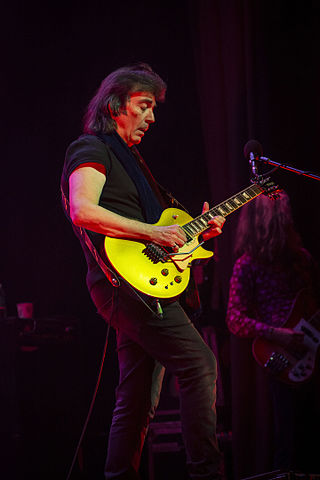
Stephen Richard Hackett is an English guitarist who gained prominence as the lead guitarist of the progressive rock band Genesis from 1971 to 1977. Hackett contributed to six Genesis studio albums, three live albums, seven singles and one EP before he left to pursue a solo career. He was inducted into the Rock and Roll Hall of Fame as a member of Genesis in 2010.
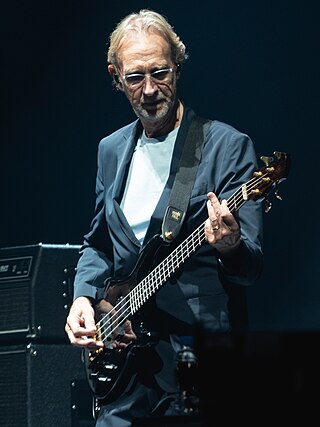
Michael John Cloete Crawford Rutherford is an English guitarist, bassist and songwriter, best known as co-founder, lead guitarist and bassist of the rock band Genesis. He and keyboardist Tony Banks are the group's two continuous members.
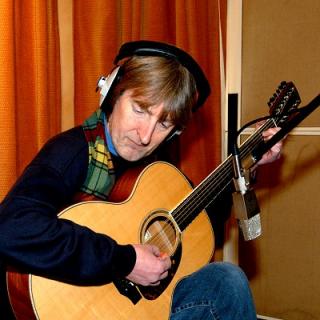
Anthony Edwin Phillips is an English musician, songwriter, producer and singer who gained prominence as the original lead guitarist of the rock band Genesis, from 1967 to 1970. He left in July 1970 and learned to play more instruments, before he began a solo career. His departure from Genesis on the eve of the group's breakthrough to mainstream popularity has led him to be popularly dubbed "the Pete Best of progressive rock".
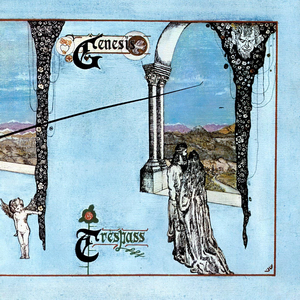
Trespass is the second studio album by the English rock band Genesis. It was released on 23 October 1970 by Charisma Records, and is their last album with original guitarist Anthony Phillips and their only album with drummer John Mayhew.
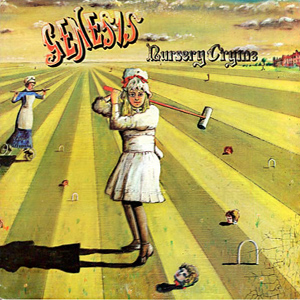
Nursery Cryme is the third studio album by the English rock band Genesis, released on 12 November 1971 on Charisma Records. It was their first to feature drummer/vocalist Phil Collins and guitarist Steve Hackett. The album received a mixed response from critics and was not initially a commercial success; it did not enter the UK chart until 1974, when it reached its peak at No. 39. However, the album was successful in continental Europe, particularly Italy.
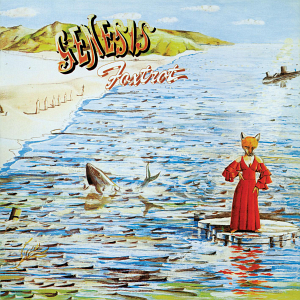
Foxtrot is the fourth studio album by the English progressive rock band Genesis, released on 15 September 1972 on Charisma Records. It features their longest recorded song, the 23-minute track "Supper's Ready".

Genesis Live is the first live album from the English rock band Genesis, released on 20 July 1973 on Charisma Records. Initially recorded for radio broadcast on the American rock program King Biscuit Flower Hour, the album is formed from the recordings of shows at Free Trade Hall, Manchester and De Montfort Hall, Leicester in February 1973 during the band's tour supporting their fourth studio album Foxtrot (1972).
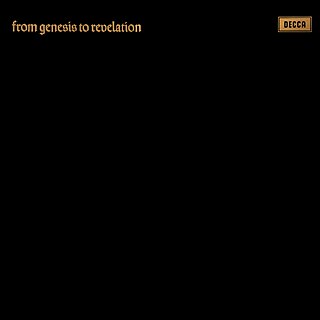
From Genesis to Revelation is the debut studio album by English rock band Genesis, released on 28 March 1969 on Decca Records. The album originated from a collection of demos recorded in 1967 while the members of Genesis were pupils of Charterhouse in Godalming, Surrey. It caught the attention of Jonathan King who named the group, organised deals with his publishing company Jonjo Music and Decca, and studio time at Regent Sound Studios to record a series of singles and a full album. A string section arranged and conducted by Arthur Greenslade was added later on some songs. By the time Genesis had finished recording, John Silver had replaced original drummer Chris Stewart.

"Supper's Ready" is a song by English progressive rock band Genesis, recorded for their 1972 studio album Foxtrot. At 23 minutes in length, it is the band's longest recorded song. Frontman Peter Gabriel wrote the lyrics, which mainly describe a personal journey of scenes from the Book of Revelation and good versus evil, with several real life experiences providing further inspiration.
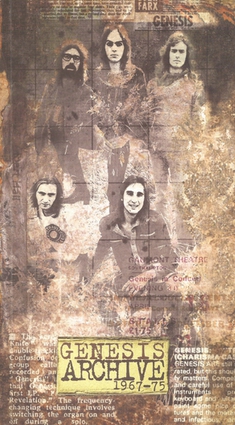
Genesis Archive 1967–75 is a box set by the English progressive rock band Genesis, released on 22 June 1998 on Virgin Records in the United Kingdom and by Atlantic Records in the United States. After the release of their studio album Calling All Stations in 1997, the band assembled recordings from their history for release which involved the participation of former members Peter Gabriel, Anthony Phillips, Steve Hackett, Phil Collins, John Mayhew, and John Silver. The set includes previously unreleased studio, live, and demo tracks, some of which include re-recorded vocal and guitar parts from Gabriel and Hackett, respectively.

Platinum Collection is a career-spanning compilation album by British veteran rock band Genesis. It was released on 29 November 2004 in the UK and 13 September 2005 in the US. In both countries it was issued on the same day as The Video Show DVD.

John Hackett is a British musician, the younger brother of guitarist Steve Hackett. Although his primary instrument is the flute, he also plays guitar, bass, bass pedals and keyboards.
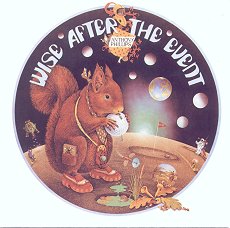
Wise After the Event is the second studio album by English musician and composer Anthony Phillips, released in May 1978 on Arista Records in the United Kingdom and in June 1978 on Passport Records in the United States. After promoting his previous album The Geese & the Ghost (1977), Phillips began to prepare material for a new album. It remains his only album that features himself on lead vocals on each track.

Smallcreep's Day is the first studio album by English guitarist and songwriter Mike Rutherford, released in February 1980 on Charisma Records. It was recorded in 1979 during a period of inactivity from his rock band Genesis, during which Rutherford and keyboardist Tony Banks recorded their first solo albums. The 24-minute title track is based on the 1965 novel Smallcreep's Day by Peter Currell Brown which tells the story of Mr. Smallcreep and the journey of self-discovery he takes through the assembly line of the factory he has worked in for forty years.
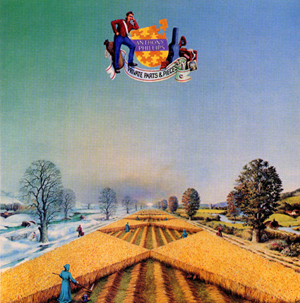
Private Parts & Pieces is the third studio album by English musician and composer Anthony Phillips. It was released in November 1978 by Passport Records in the United States, and in April 1979 by Arista Records in the United Kingdom. Unlike his previous two releases, the album is a collection of demos, out-takes, and previously unreleased material rather than an explicit attempt at a commercial album.

Private Parts & Pieces II: Back to the Pavilion is the fifth studio album by English musician and composer Anthony Phillips, released in April 1980 on Passport Records in the United States and Canada. It is the second instalment in his Private Parts & Pieces album series of previously recorded pieces that had been parts of or intended for other projects. Back to the Pavilion includes tracks recorded for Wise After the Event (1978), music during his time as a member of Genesis, and those commissioned as part of an aborted project to set Macbeth to music. It features musical contributions from Andy McCulloch and his former Genesis bandmate Mike Rutherford.
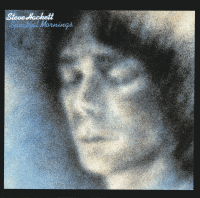
Spectral Mornings is the third studio album by English guitarist and songwriter Steve Hackett, released in May 1979 on Charisma Records. It is his first to feature members of his touring band, which many Hackett fans consider as the "classic line-up". The musicians are his brother John Hackett, Nick Magnus, Dik Cadbury, John Shearer, and Pete Hicks.

Out of the Tunnel's Mouth is the 20th studio album by English guitarist and songwriter Steve Hackett, released in October 2009 by Wolfwork and EAR Music. Hackett started recording the album in 2008 while he was involved in a legal case against his ex-wife Kim Poor, which created problems regarding its release. As a result, recording took place in his living room with his touring keyboardist Roger King serving as co-producer. The album includes performances by founding Genesis guitarist Anthony Phillips and Yes bassist Chris Squire.
"The Musical Box" is a song by English progressive rock band Genesis, which was originally released on their third studio album Nursery Cryme in 1971. The song is written in the key of F# major. This song is the longest song on the album at ten and a half minutes.

Far Skies Deep Time is the first official studio EP by the English progressive rock band Big Big Train. It was released in 2010 by English Electric Recordings, and re-released in 2011 with "Kingmaker" replacing "Master of Time" as the first track. It contains five tracks, including a 17-minute epic about the last voyage of Belgian singer Jacques Brel.




















